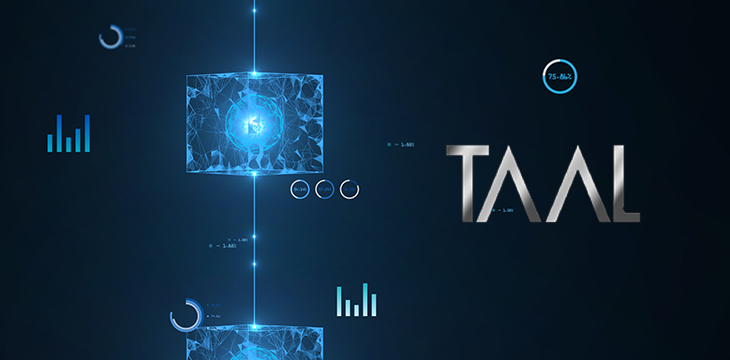|
Getting your Trinity Audio player ready...
|
In a show of Bitcoin’s capabilities to process large transaction volume quickly, TAAL processed its largest ever single block. The record-making block, on the Bitcoin mainnet, was 309MB in size and contained 1,178,322 mostly-small and regular transactions.
TAAL announced the block confirmation on Twitter and encouraged any future high-volume data users to contact the company to join its MAPI beta program.
The 309MB block came a day after BTC experienced its block subsidy halving event. TAAL said the transactions were organic—that is, originated from unknown third parties without notification—and it wasn’t a coordinated effort to produce a large block.
That said, the abnormally full mempool presented transaction processors with an opportunity to demonstrate the Bitcoin network’s scalability. Even though the transactions concerned were low-fee and small, TAAL thought it would make a good point to clear them all out at once.
We are excited to announce TAAL has processed a record breaking block on BitcoinSV. 309MB Block, 1.1 million transactions. Contact [email protected] to join our MAPI BETA for bulk transaction processing with volume discounts on the most scalable blockchain BitcoinSV! pic.twitter.com/GU1rz3DxTW
— TaalBlockchain (@TaalBlockchain) May 12, 2020
TAAL CEO Jerry Chan: This shows how transaction processors’ role is changing
Speaking to CoinGeek, TAAL CEO Jerry Chan said it showed how transaction processors’ role in Bitcoin is evolving. Though the network is capable of handling sudden and large increases in transaction volume, anyone intending to use Bitcoin to process high-volume and large transactions would be better off negotiating prices and service levels with a processor beforehand.
This differentiates Bitcoin SV (BSV) from BTC or perceptions of transaction processors’ roles in the past. Processors, or “miners” as they were commonly known, were generally unseen participants in the network that were rarely if ever consulted over usage volumes.
“We wanted to slowly educate people, show them the way Bitcoin is supposed to work,” Chan said. Those used to the old BTC model of limited-size blocks and simple transactions and near-anonymous “miners” may not consider consulting with them (or even know how to).
TAAL, on the other hand, is changing that model and view. The company wants to be known publicly as a transaction processor with a professional service reputation. The record block has helped them make that point.
Concepts like different requirements and service level agreements that took into account timing, storage and volume levels, and data type were concepts that only applied to BSV, Chan said. Those things were better pre-negotiated with processors like TAAL and others to streamline operations on both sides.
He added that his team had been vaguely aware of a group conducting a form of stress test for the Bitcoin network by broadcasting small transactions in large volumes. However the move was wholly external to TAAL and was not discussed with the company beforehand. TAAL processed the transactions with its default settings and fee structure.
Encouraging large users to consult with processors
For the record, the 309MB block earned 0.78867581 BSV in fees on top of the newly-halved 6.25 BSV block subsidy. That fee reward actually isn’t much—a further demonstration of Bitcoin’s efficiency.
There are two kinds of customers for large scale processing, Chan said. There are the high-volume and small-data transactions, and ones looking to process a certain number of megabytes (or even gigabytes eventually) per day. TAAL aims to serve both kinds with custom discount plans tailored for each, and Chan reiterated the call for such users to contact them and join their MAPI beta program.
“We want to hear what customers want and what their requirements are,” he said. Getting people accustomed to the notion of pre-negotiating service levels is part of the evolution.
Bitcoin BSV on the whole seeks to professionalize transaction processing as an industry. Companies will specialize based on the size and volume of transactions they will handle, and have the ability to set their own block size limits. They will eventually have their identities stamped on the blocks they process (currently still a voluntary function) and their reputations will become based on their standards.
Chan closed with: “I want to make sure the world knows that we can process as big a block as they want. But transaction processing isn’t a charity on BSV and sending transactions without the minimum required processing fee is likely going to mean the transactions won’t get processed in a timely manner. This isn’t BTC. This is Bitcoin. And we have grown up and professionalized.” At the time of writing Chan mentioned that the minimum fee rate on the open BSV network is 0.5 sat/byte.

 02-19-2026
02-19-2026 




